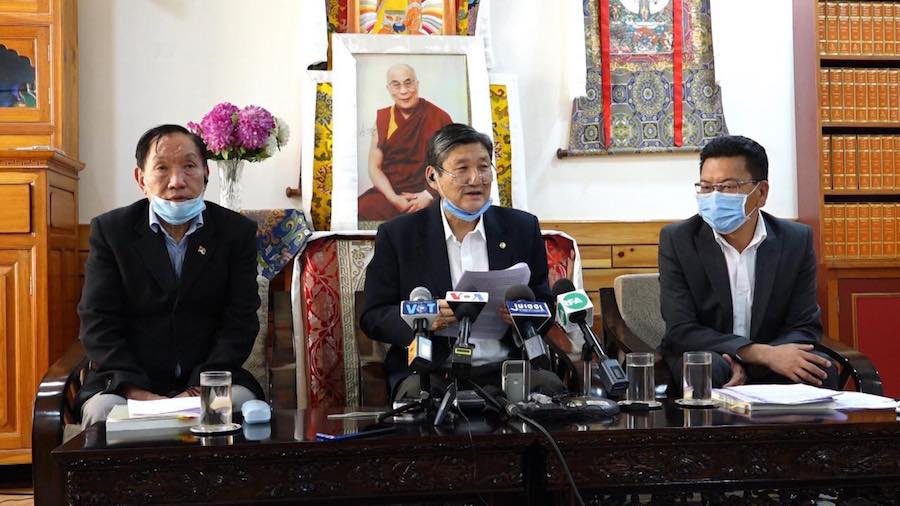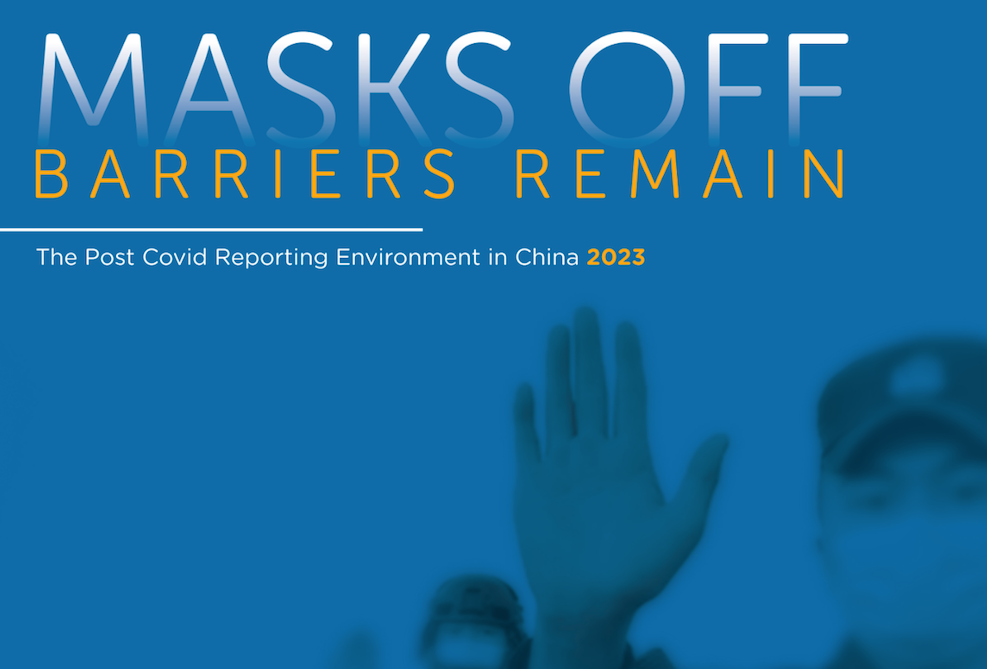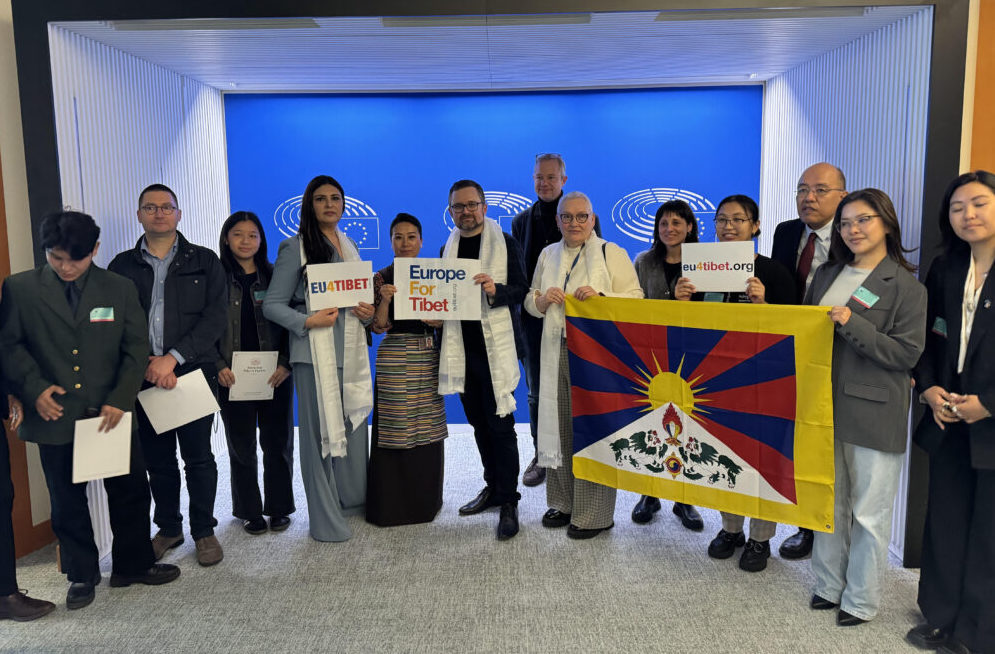By Tenzin Choenyi
I am a member of the Tibetan community in exile and never took active interest in the Tibetan diaspora politics, but the issue of the Tibetan Supreme Justice Commissioners (TSJC) resigning from their post in March and re-joining their post in May lacks sound legal stand, if I may be allowed to say so.
The current conflict over the legitimacy of TSJC is bigger than Cholkha, Choelug, and ideology. The sole reason why the 9th session of the 16th parliament in exile was not able to convene is not about Cholkha (Three Provinces) but about the Constitution (Charter).
Many of us look at it as two groups of MPs i.e., Amdo and Utsang on one side and Khampa and Choluk on the other in a simplistic way, but how did they even come to this difference of idea?
Just to understand the Chronology of the contestation on Legitimacy of TSJC:
Each session needs to be held 6 months after the previous session mandated by the charter i.e one spring session (March) and one monsoon session(September). In 2020, the Standing committee member of TPiE requested to postpone the monsoon session stating the Article 6 of the charter “Respect for international law and laws of the concerned country. It shall be ensured that all laws of the Central Tibetan Administration, Executive orders, and its regulations are in compliance with international law and, in particular with the laws of the host countries.” But TSJC argues that the reason for postponement of the session doesn’t apply citing the host state Himachal and neighbouring states Haryana and Punjab held their parliamentary sessions.
The parliament speaker tried to negotiate with the TSJC. However, TSJC denied all their requests by stating they are defendants in the case and hence they can not meet for negotiation.
August 21 2020: TSJC sent a letter to 11 standing members of the TPIE stating that postponing the parliamentary session indefinitely was unconstitutional. Therefore, they cannot postpone the September session and gave them a deadline by September 14. If they were not to meet the deadline, they would be penalised; they would revoke their Right to vote and stand in the election.
September 18 2020: The TSJC penalised the 11 Standing Committee members by denying their Right to vote during the preliminary voting of the 17th parliament term.
The 11 Standing members of the TPiE were later not allowed to vote during the Preliminary voting of 2021.
On March 25 2021, March session the Standing Committee of the TPIE bought BILL NO- 39, which mainly focuses on removing the TSJC. They held a secret ballot and got a 2/3 majority in the parliament, which resulted in impeachment of all three judges of the TSJC.
When the parliamentarians ousted the three TSJC from their positions, the three now-former Justice Commissioners held a press conference on March 26, 2021 along with a press statement clearly mentioning their resignation (བཤོལ་བ།).
But when they joined back on May 24, 2021 they mentioned that they said recused (ལས་འགན་བཤོལ་བ། / རེ་ཞིག་བཤོལ་བ།) which wasn’t at all mentioned in the previous statement. The TSJC rejoined their post at the behest of signature campaign letters sent by former Chief Justice and justice commissioners, former kalon tripa and kalons (ministers), former Chithues and many of the former government servants of CTA. Except the letter from former kalons, which was given to the parliament secretariat (ཚོགས་སྒྲུང་ལས་འཁུང་) by hand by the former Kasur Tenpa Tsering, rest of all the signature campaigns mentioned above were online/ never physically given to the parliament secretariat by hand, therefore all these petitions are not regarded as valid and considered as yig khyam (ཡིག་འཁྱམས་) as per the rules and understandings of the Parliament Secretariat.
Right now all thinking Tibetans feel the dreadful repercussions and ripples of not having the August office of TSJC. Without TSJC, who will take the oath of the newly elected Sikyong, election of the speaker and deputy speaker of the 17th term parliament, appointment of the new kalons and passing of the budget session.
These consequences should have been felt right from the beginning by the TSJC, Sikyong at the time, speaker and deputy speaker and 16th term parliamentarians. It appears that when you look back the Chithues are happy about managing to impeach the three TSJC. The TSJC also just reminded the parliamentarians that their quotations from the charter were neither legal nor correct yet they chose to resign. All of the former offices and dignitaries are responsible for creating such a situation.
This is not to discuss if Chitues voting to impeach the TSJC is correct or not but the TSJC’s acceptance and announcement to resign in March at the press conference loud and clear and then return in May by rewording that they have recused and not resigned.
If the TSJC are endowed with common sense and seriousness they should have consulted Tibetan Legal advisors/experts before resigning.
In general, the leader of a country is called a great statesperson because they can see all the future repercussions/consequences and problems much in advance and then make the decisions and further take necessary steps.
(Views expressed are her own)
The writer is a member of the Tibetan civil society and is based in Dharamshala.











4 Responses
I always knew that this was never an issue. The TSJC were just plain victim. The author’ s one cent was indeed just one khota sikka.
This piece of writing is so far straight forward, judicious and accounted all those who are responsible for the chaos. Once the 17th parliamentarians session begin in March 2022, their first responsibility would be to set up fact finding committee who should start inquiry and investigate official documents prepared by the previous Secretary of the Justice Department. If they find something suspicious, serious legal action against culprit must be taken without any exception. It is a matter of perpetrator and has to be dealt with Sukha discharge. From resignation to recusal meth must have involved few culprits not just judges alone.
Though our Charter does not confer suo motu power to judges if we read Chapter IV, Judiciary Power under article 66. Despite if TSJC claim that they are provided this special power in the Charter, this argument was completely clarified during the last session of the 16th parliamentarian’s session and they passed resolution to nullify this kind of claim. Thus, TSJC doesn’t have suo motu power to nullify the resolution 39, impeachment act nor to seek recue. TSJC have no option other than leaving their position. Their supporters did not use wisdom but use collective might which encouraged removed judges to reinstate themselves. Collective might is simple to use because many of their past legacy proves sincerity, selflessness, and convincing to general public. When good people take the advantage of their legacy to overrule even constitution, it is not difficult for them. As such, it happened this time where winner is the righteous group.
Please now, this is more than enough, no more blah-blah- blah long story of your own version extending unnecessarily to nowhere destination. The whole points written in your article is cooked up at your supporting selfish side & expressing your own views. You did not care at the times when the TSJC tried to explain to the Standing members of 16th TPiE that how so significant it was to start the session of the House, for the sake of strengthening Tibet cause, for the welfare of the Tibetan people protecting the rights & duties of the CTA democratic rules of the government.
The writer has wrongly written the word meaning Resignation as (བཤོལ་བ) but the correct meaning of the resignation is (རྩ་དགོངས།)my friend, there is a big difference between the two.
You say, TSJC row…………………but i would definitely say it is 16th TPiE rowwwwwwwwww.(law breaker of our Charter), creating immense chaos in our own society including international disgraceful at large). Everyone is aware of this Parliament deadlock row happening for the last several months, what exactly has happened, no proper rules were followed from the Chatrim Rinpoche book….Consequently, the former both Speaker & Deputy Speaker had to resigned from their post. The new House elect Chitues got divided into two parties group fighting like BJP & Congress in India, realizing their own fatal mistakes that what they have done in 16th TPiE. Hence, there is nothing left to explain in details.
Now the bottom line is how to bring out the proper resolution of this TPiE impasse .
Bodh Gyalo.
If the words of the former ministers, chief justices and government employees matter more than the will of the common people, then do we even have a democracy? Isn’t this oligarchy? The very reason we have chitues or parliamentarians voted by the people is to hold people in the center of power accountable. This TSjC episode is a perversion of our democracy and an abuse of power.
The fact that the three justices (TSJC) can flip on a dime, call their resignation a recusal, and undermine the legislative process sanctified by our chatrim (2/3 majority of the parliament) is a red herring. It sets the tone for more abuse of power and disregard for the common people.
How can these justices illegally reinstate themselves just on the ground that former ministers want them back? This article should be shared widely because it makes some extremely compelling points. The fact that an online petition takes precedence over 2/3 majority of the elected parliamentarians/chitue should tell you everything about these people view power.